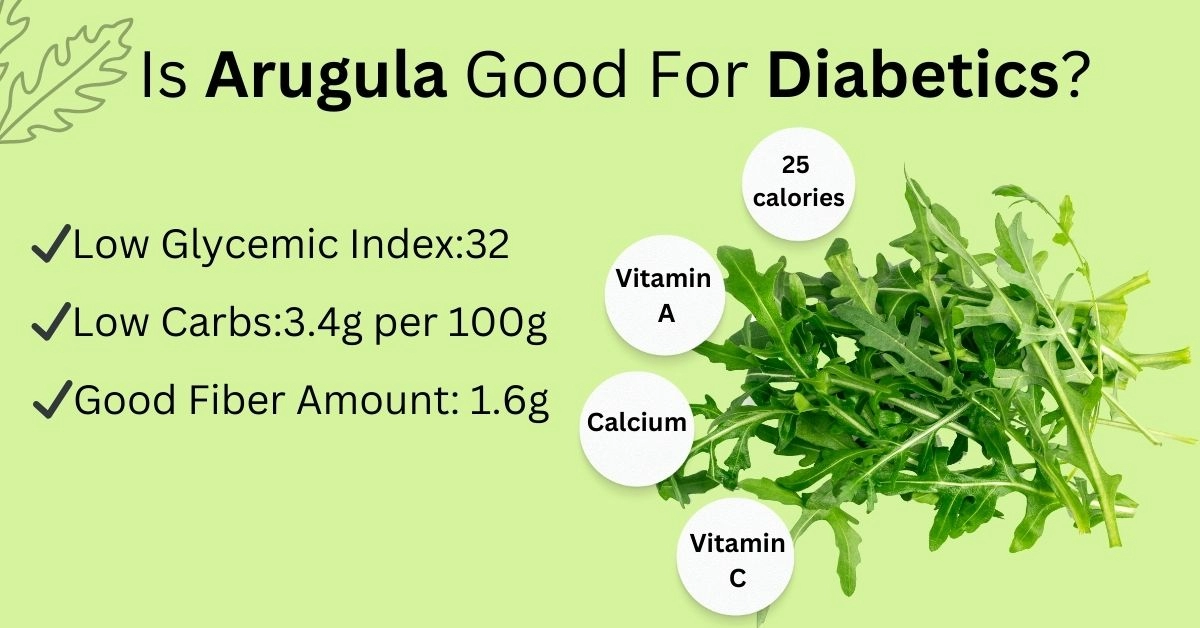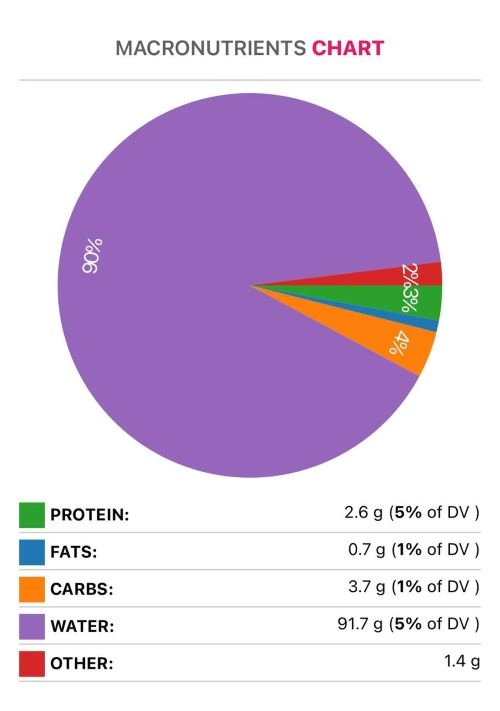Arugula and Diabetes - Is It Good For Diabetics

Introduction
Arugula, also known as rocket, is a super-nutritious green leafy vegetable that has many beneficial effects on blood sugar and insulin levels in the case of diabetes.
Glycemic Index and Carbohydrates
Arugula has a low carbohydrate content and low glycemic index. It provides only 3.65g of carbs per 100g. The GI value of arugula is equal to 32, which is considered a low GI.
This means arugula consumption can't raise blood sugar levels; this vegetable can also help lower glucose levels in the blood.
Besides, arugula contains a good amount of fiber, which can also benefit people with diabetes since fiber slows digestion. High-fiber foods make people feel fuller for extended periods, which can aid in the prevention of overeating (1).
You can visit our Glycemic index chart page for glycemic index values of 350+ pages.

Type-2 Diabetes
Arugula contains a high amount of alpha-lipoic acids, a powerful antioxidant. It can improve glucose transport into cells and prevent diabetic neuropathic complications (2).
Research shows that isothiocyanate compounds such as sulforaphane and erucin can lower the body's risk of cancer, inflammation, and oxidative stress. Sulforaphane can also help with insulin resistance (3.4).
Arugula is also rich in Vitamin A and Vitamin K, which may help regulate insulin release and improve glucose metabolism and insulin sensitivity.
According to one test-tube study, arugula extract has anti-diabetic effects.
Arugula and other cruciferous vegetables are also high in fiber, which aids in blood glucose regulation and may reduce insulin resistance (5.6).
Several studies have found that eating vegetables lowers the risk of developing type-2 diabetes. Arugula contains a lot of lutein and zeaxanthin, two antioxidants that are good for your eyes. Because eye problems are a real risk of diabetes, eating plenty of lutein and zeaxanthin may help lower your risk of blindness, glaucoma, macular degeneration, and other devastating vision problems. They also help lower blood pressure, a significant risk factor for heart disease (7).
Arugula is high in calcium and magnesium, essential minerals for dilating blood vessels and maintaining healthy blood pressure levels.
It also contains a significant amount of potassium, which may help reduce the risk of hypertension.
Consuming a balanced and nutritious diet that includes whole grains, dairy, fish, fruits, vegetables, and greens (including these ones) can effectively reduce fasting plasma glucose, HbA1c, and LDL (bad cholesterol) levels in people diagnosed with type 2 diabetes (8).
References
- https://pubmed.ncbi.nlm.nih.gov/22218620/
- https://www.ncbi.nlm.nih.gov/pubmed/23678828
- https://www.ncbi.nlm.nih.gov/pubmed/24950293
- https://pubmed.ncbi.nlm.nih.gov/35709656/
- https://www.ncbi.nlm.nih.gov/pmc/articles/PMC6130626/
- https://www.ncbi.nlm.nih.gov/pubmed/29461482
- https://pubmed.ncbi.nlm.nih.gov/26310005/
- https://academic.oup.com/jes/article/2/1/42/4638331?login=false
